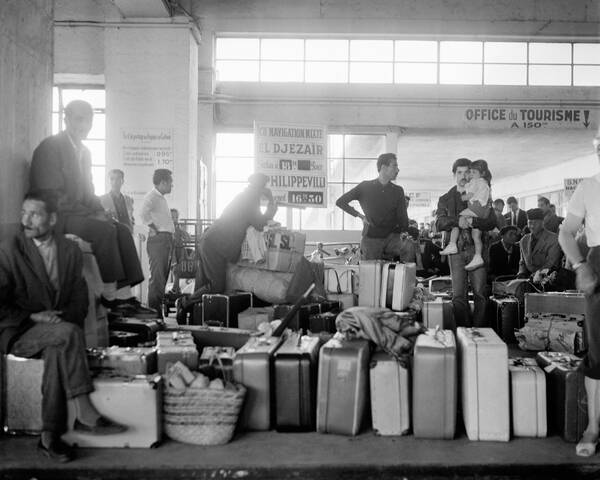You are now entering the Jewish Currents archive.
 The Luxembourg reparations agreement between West Germany and Israel was signed on this date in 1952, following lengthy negotiations between Israeli Foreign Minister Moshe Sharett and West German Chancellor Konrad Adenauer and very fierce debate in the young state of Israel. Under the Agreement, West Germany paid reparations for its crimes against the Jewish people amounting to more than $800 million in goods over the course of fourteen years (of which $107 million were allocated to the Conference on Jewish Material Claims against Germany, headed by Nachum Goldmann and representing Jews outside of Israel). Goods bought under this arrangement built up Israel’s infrastructure, including railways and power plants, and helped sustain the households of some half-million Holocaust survivors. An additional $125 million was paid in 1988 to enable survivors around the world to receive monthly payments of $290, and two years later, in the course of unifying with West Germany, East Germany also agreed to pay reparations. In 1999, Germany obtained the dismissal of numerous class action lawsuits, past and future, with a $5 billion payment to a foundation that provided compensation to former slave laborers under the Nazi regime, including 140,000 Jews in 25 countries, until 2006.
The Luxembourg reparations agreement between West Germany and Israel was signed on this date in 1952, following lengthy negotiations between Israeli Foreign Minister Moshe Sharett and West German Chancellor Konrad Adenauer and very fierce debate in the young state of Israel. Under the Agreement, West Germany paid reparations for its crimes against the Jewish people amounting to more than $800 million in goods over the course of fourteen years (of which $107 million were allocated to the Conference on Jewish Material Claims against Germany, headed by Nachum Goldmann and representing Jews outside of Israel). Goods bought under this arrangement built up Israel’s infrastructure, including railways and power plants, and helped sustain the households of some half-million Holocaust survivors. An additional $125 million was paid in 1988 to enable survivors around the world to receive monthly payments of $290, and two years later, in the course of unifying with West Germany, East Germany also agreed to pay reparations. In 1999, Germany obtained the dismissal of numerous class action lawsuits, past and future, with a $5 billion payment to a foundation that provided compensation to former slave laborers under the Nazi regime, including 140,000 Jews in 25 countries, until 2006.
These reparations were the subject of immense social upheaval in Israel. Some, including political leadership on the left and right, argued that no monetary payment from Germany could erase the crimes committed during the Holocaust. Nevertheless, the measure succeeded.
“One is the ghetto Jew’s approach and the other is of an independent people. I don’t want to run after a German and spit in his face. I don’t want to run after anybody. I want to sit here and build here.” --Menachem Begin
For a Jewish Currents blog about American reparations for slavery, visit http://jewishcurrents.blogspot.com/2007/04/rreparations-for-slavery-question.html/.
